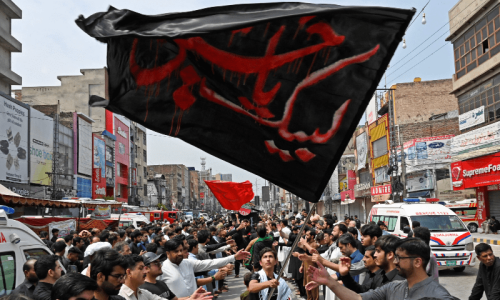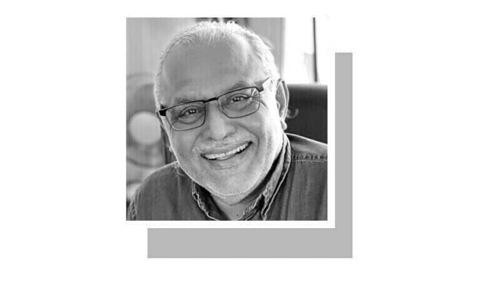Mushahid terms Pakistani talent, Chinese tech ‘invincible wall’ for South Asia’s peace and stability
Former senator Mushahid Hussain Syed on Friday termed “Pakistani talent and Chinese technology an invincible wall” for peace, security and stability in South Asia during a dialogue held in Islamabad.
Pakistan has held strong bilateral relations with China which has supported it through many investments and development projects such as the China-Pakistan Economic Corridor (CPEC), termed as a “lifeline” for the country’s economy.
The ex-senator’s comment came during a keynote address at the Pakistan-China Dialogue hosted by the Pakistan-China Institute (PCI) under the auspices of the “Friends of Silk Road”, according to a statement by the PCI. The event was attended by diplomats, parliamentarians, students and scholars.
Mushahid, who serves as the PCI chairman, observed: “The global balance of economic and political power is shifting from West to East, heralding the Asian Century.”
He lauded China’s “peaceful rise as a source of strength for developing nations across Asia, Africa and Latin America” and thanked Beijing for its unwavering support of Pakistan’s territorial integrity and sovereignty, especially last month in the face of Indian aggression.
Condemning recent Israeli strikes on Iranian territory, Mushahid called the attacks “a flagrant violation of International Law and the UN Charter” and rejected narratives promoting a “new Cold War or so-called China threat”.
“Security is preserved through cooperation, not military blocs, or demonising countries through disinformation”, he stressed.
The event was also attended by a five-member delegation from the Communist Party of China’s International Department (IDCPC) led by its spokesperson, Ambassador Hu Zhaoming.
Speakers celebrated the enduring “Iron Brothers” partnership, championing a multipolar order based on the UN Charter, and highlighted Chinese President Xi Jinping’s Belt and Road Initiative (BRI) as a catalyst for peace, prosperity and regional connectivity.
PCI Executive Director Mustafa Hyder Sayed, who was also the dialogue moderator, noted that the historic Silk Road friendship between Pakistan and China “has never been transactional or tactical”. “Rather, it is rooted in shared history, trust and a common commitment to uplift the wider neighbourhood.”
He termed the dialogue as part of PCI’s broader effort to amplify voices from Asia and the Global South, given the changing global scenario.
Pointing to escalating Cold War rhetoric, he condemned the newly created US Congress’s “Countering PRC Influence Fund,” which authorises $325m per year from 2023 to 2027 to counter the influence of the Chinese Communist Party and Government of China worldwide.
Mustafa called the measure “a Cold-War-era throwback that diverts resources from development and dialogue, precisely the opposite of what our region needs”.
IDCPC’s Zhaoming said Pakistan was “etched in the deepest hearts of the Chinese people”, adding that “China and Pakistan are like two sides of the same coin — you cannot choose one without the other.”
Highlighting the BRI’s evolution since 2013, Ambassador Hu noted that over 150 countries now participate in the initiative, which “promotes China’s own inland development while fostering global connectivity.” He urged younger generations to “carry the torch of friendship forward.”
Minister of State for Climate Change, Dr Shezra Mansab Ali Kharal, argued that the current world order was “visibly fragmenting”, while China consistently advocated multipolarity, non-intervention and equality among states.
“The BRI embodies this vision,” she said, stressing “fostering a network of interdependent economies that choose dialogue over conflict”.
Former foreign secretary Ambassador Aizaz Ahmad Chaudhry echoed the call for cooperative paradigms during what he called “a time of flux where wars erupt and rules collapse”.
He said President Xi’s philosophy of “win-win cooperation and mutual respect” offered “the most promising foundation for a future world order when the dust settles”.
Minister of State for Law and Justice Aqeel Malik emphasised that “security and stability are paramount” for CPEC’s success. He proposed Afghanistan’s inclusion in CPEC, calling it “a natural extension of the shared-future vision”.














































